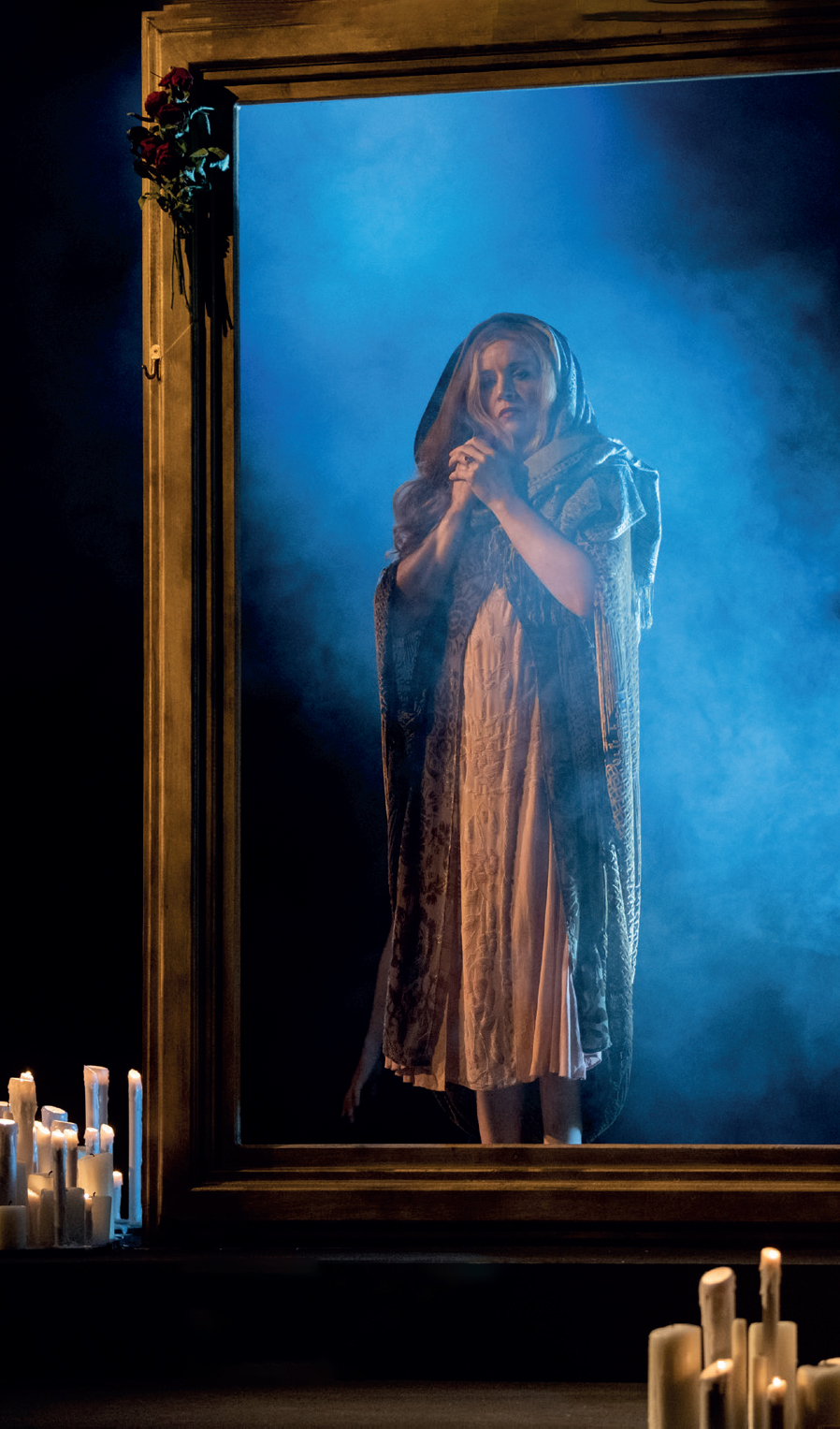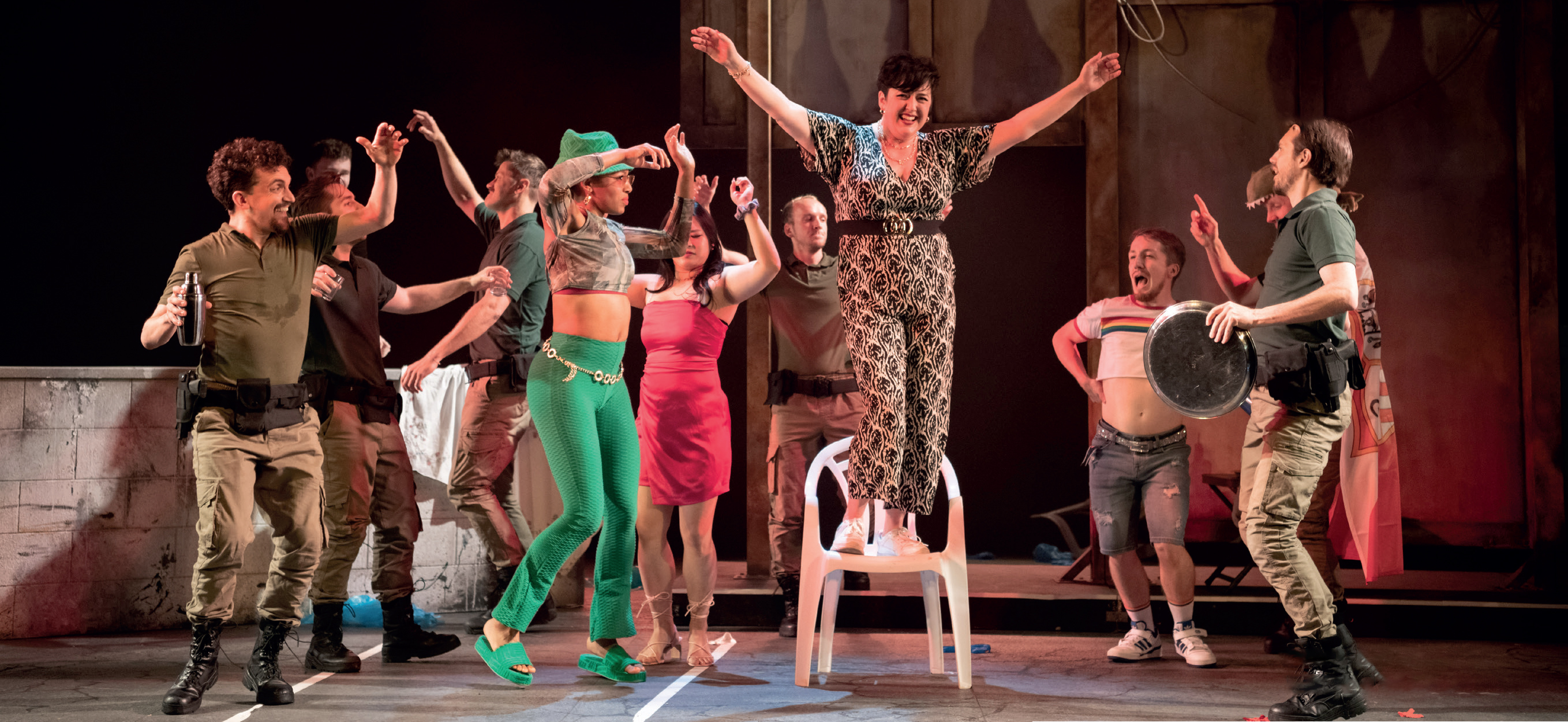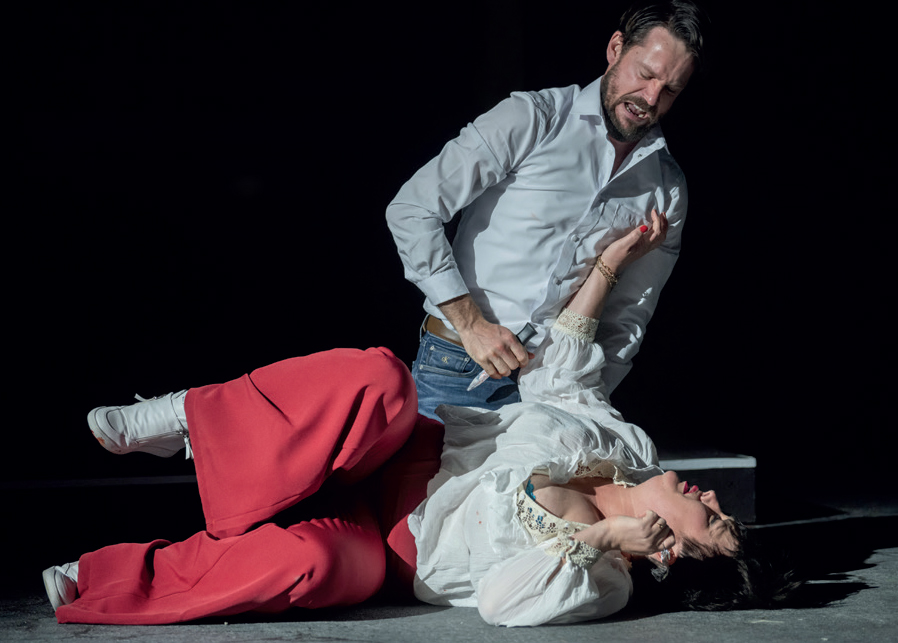Longborough Festival Opera: Die tote Stadt and Carmen | Live Reviews
Adrian Mourby
Friday, September 2, 2022
I have never heard such a crisp rendition of Bizet's score, nor such sensuous and precise singing. Photography by Matthew Williams-Ellis

Die tote Stadt
When Polly Graham took over at Longborough from her parents just before lockdown, she resolved to spend more money on the non-Wagnerian repertoire.
After a very well-sung Siegfried with lots of back projection (reviewed in the August 2022 issue of Opera Now), the small LFO stage was made over to Korngold's Die tote Stadt (The Dead City). It was a brave choice, given that the opera has never quite made it into the operatic canon, despite having all the musical mastery (pre-Turandot) of a Puccini. (The Tuscan maestro actually befriended the young Austrian Korngold after World War I.)

Rachel Nicholls in a virginal incarnation of Marie in Die tote Stadt
Korngold was in his very early twenties when he wrote the work, adapting the libretto with his father. The young composer was a fast learner music-wise but at the premiere of Tote Stadt he had the emotional maturity of a sentimental teenager who seems to share the obsession of widowed Paul as to whether young Marietta is virtuous enough to replicate his dead wife Marie.
This relatively rarely performed opera was directed by Carmen Jakobi, who helmed LFO's Tristan and Isolde in 2015. Jakobi's cast had British soprano Rachel Nicholls as Marie/Marietta with Peter Auty as the bereaved Paul. The orchestra was conducted by Justin Brown, who did a superb job bringing out the best in what is a great score.
The director also did a good job on a small black set filled with empty picture frames and candles; but essentially this remains a dramatically flawed opera. The music is light years ahead of the narrative. Yes, Paul has problems with women who are sexual, and fantasises about killing them. He really should have had counselling and given the rest of us a break.
MUSIC ★★★★
STAGING ★★★
Carmen
Men's inability to function rationally when confronted by powerful female sexuality was also the theme of the third opera at Longborough this summer.
Bizet's Carmen was directed by Mathilde López and conducted by Jeremy Silver. Maybe it has something to do with the festival's idiosyncratic acoustics (a repurposed agricultural building with reclaimed seating from a Covent Garden skip) but I have never heard such a crisp rendition of Bizet's score, nor such sensuous and precise singing. Carmen, José and Micaëla were note-perfect with only Escamilo (Matthew Durkan) struggling in his lower register. Ironically Durkan's was the best-acted performance among the leads, creating a relaxed and charming athlete for whom anyone would trade in poor, damaged Don José.

Carmen, with Margaret Plummer in the title role
As Carmen, the Australian mezzo Margaret Plummer was vocally flawless, but just too nice, too maternal to be Bizet's haunted femme fatale. When she suddenly proclaims that the cards have predicted her death, it was hard to credit. This Carmen would have said, ‘Well that's plain silly’ and put the kettle on for a nice cup of tea. Sadly, she and Don José (Peter Gijsbertsen) had no rapport, although the two of them did pull off a great murder scene at the end, with blood everywhere and Jose plunging the knife repeatedly into Carmen's lifeless back.
As for Micaela, Jennifer Witton sang with the voice of an angel but was dressed in the frumpiest way possible. With her pigtails, big glasses, cardigan and backpack she might as well had walked around the stage with a big placard round her neck announcing ‘Girly Geek’. The production seemed to be aiming for comic relief when it wasn't needed - and it is a complete misreading of the opera to believe that José goes for Carmen just because Micaela was not attractive enough. José surrenders to Carmen because they are two damaged creatures on an ill-fated trajectory that will destroy them both. One should never come away from Carmen thinking, Well if only Micaela had a makeover, all this tragedy could be averted’.

Samuel Pantcheff as Moralès with Jennifer I Witton as Micaëla
The tone of the production shifted repeatedly, with the smugglers played for laughs and Carmen addressing the orchestra pit to ask if anyone could play the castanets ahead of her Act II song without words. When played well, Carmen does not need comic relief. It's a relentless spiral downwards with superb music.
López did throw in some good ideas in a show updated to a Andalusian jamon factory. Don José's mother silently haunted the stage and Lillas Pastia emerged as a character in his own right played with silent camp glee by diminutive baritone, James Gribble.
The production was not without its challenges. On the opening night so many members of the cast had succumbed to Covid that a concert version was staged with the understudies. And on the penultimate night so many extractor fans were working overtime in the sweltering opera house that there was a sudden blackout and Don José and Carmen had to be led off stage by torchlight.
The final performances in this two-month season were in a doublebill, of La liberazione di Ruggiero and the first full performance of Freya Waley-Cohen's Spellbook, both presented by Longborough's Emerging Artists Programme.
MUSIC ★★★★
STAGING ★★★






